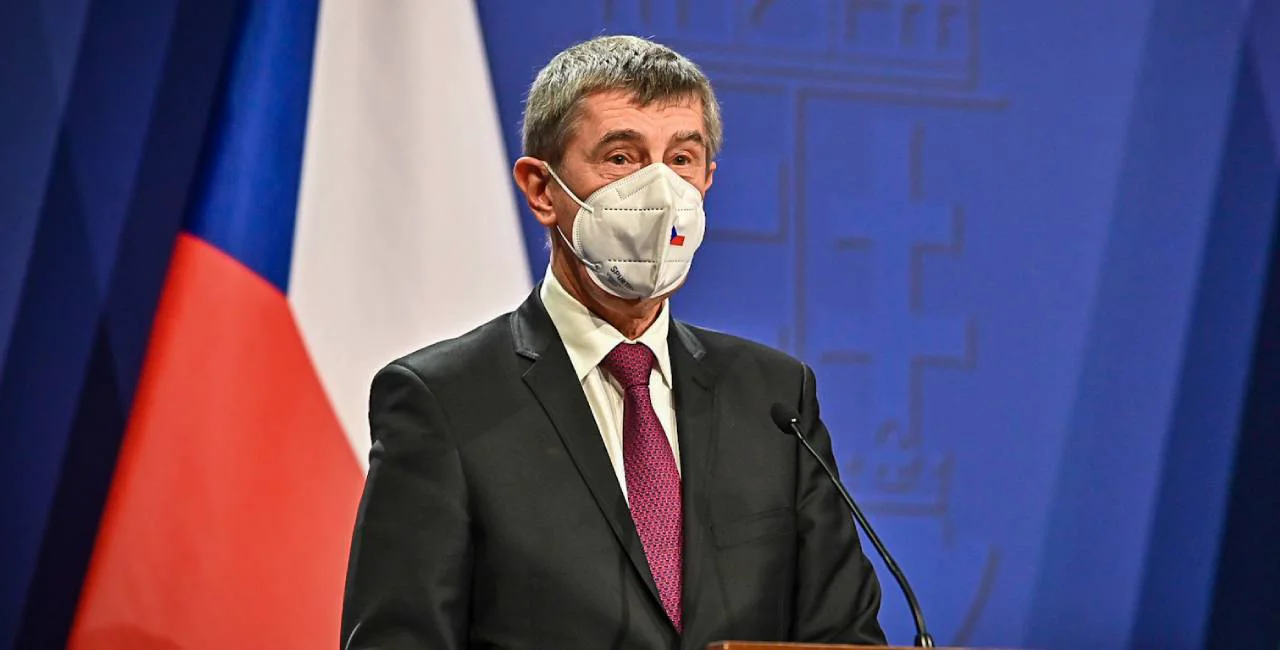The Czech government has declared the new state of emergency from Feb. 27 for 30 days until March 28, Prime Minister Andrej Babiš said during the government's evening meeting. Earlier in the day, the Chamber of Deputies passed a new pandemic law, which President Miloš Zeman has already signed.
The government is expected to announce new tougher restrictions later tonight, based on the authority granted under the state of emergency and pandemic law.
PARTNER ARTICLE
After a long debate, the Chamber of Deputies, which is the lower house of Czech Parliament, refused to prolong the existing state of emergency and called on the government to instead declare a new one. The lower house canceled the current state of emergency as of Feb. 27.
Opposition lawmakers said the government had declared it at the regional governors’ request two weeks ago so that it immediately followed the previous state of emergency that the Chamber of Deputies refused to prolong.
The government steps have already been challenged at the Constitutional Court by senators who asked for the cancellation of the current state of emergency.
Babiš dismissed the idea that the extension of the state of emergency was in conflict with the constitution. “We believe that we declared it correctly,” he added.
The state of emergency has been valid in the Czech Republic without a pause since Oct. 5.
The government is convinced that the reasons for the continuation of the state of emergency have not ended. If anything, they are more intensive than ever.
In the long run, it will be necessary to toughen the lockdown. Both the public health protection law and the pandemic law, the Chamber of Deputies passed today, are not sufficient for this, the government said.
In its report, the government described the current epidemiological situation as the worst since the outbreak.
This is why the government is planning to limit the movement of people and contact between them beyond the framework of the current measures, Health Minister Jan Blatný told the Chamber of Deputies today.
As of Monday, he wants to ban the movement among districts, introduce the compulsory wearing of respirators, compulsory corporate testing, the closure of all schools including kindergartens, and further limitation of shops. The night curfew between 9 p.m. and 5 a.m. is to remain valid.
The lower house has several times backed the government request to prolong the state of emergency, but it rejected the latest proposal to have it extended until March 16.
As a result, the state of emergency was to finish in mid-February, but at the request of regional governors, the government declared another state of emergency. Some lawyers and 35 senators say this conflicted with the constitution, and then turned with a complaint to the Constitutional Court.
Pandemic bill enabling ministry to issue broad COVID rules passed
The Czech Health Ministry and public health authorities will be empowered to issue broad anti-COVID restrictions, including on stores, services, productions and public and private events on national and regional level, based on the pandemic bill the Chamber of Deputies passed today.
The Chamber passed the version returned to it by the Senate with certain modifications this week, and it has already been sugned into law.
The restrictions can only be in force within a pandemic alert, which the Chamber of Deputies can end or renew, says the bill.
Without the Senate's modification, the bill would have prevented the Chamber of Deputies from intervening against the measures taken by the Health Ministry or public health authorities. The measures would have remained in force even if the Chamber had canceled the pandemic alert.
The government agreed on the wording of the pandemic law with most opposition parties.
The debate preceding the vote was stormy. Lawmaker Lubomír Volný (independent) provoked outrage again by coming to the session without a face mask. He called the government and deputies who voted for the bill assassins.
The bill will only refer to the COVID-19 pandemic. After it takes effect, the state of pandemic alert will start.
Beyond the framework of the powers from the current public health protection law, the Health Ministry or public health centers will be able to nationally or regionally limit public transport, retails shops, hairdressers, pedicure, manicure, and similar services as well as swimming pools, private and public events and universities.
They will be able to order the use of protective means and COVID-19 testing of employees.
The violation of the measures is liable to fines. The failure to wear the face masks or respirators may be fined up to CZK 30,000 The most serious violations may be fined even with CZK 3 million crowns.
The emergency measures will demand government consent, and will have to be justified from the viewpoint of the epidemiological situation and risks.
The need for the restrictions will be examined once every two weeks and the government must inform the Chamber of Deputies about them in the same interval. Measures taken by the public health centers may be questioned at regional courts.
The Health Ministry will be able to ask parts of the integrated emergency system for help in connection with COVID. The government will be able to decide on whether to deploy the military.
The state will have to compensate for damage arisen within the pandemic alert both to individuals and businesses.












 Reading time: 4 minutes
Reading time: 4 minutes 































